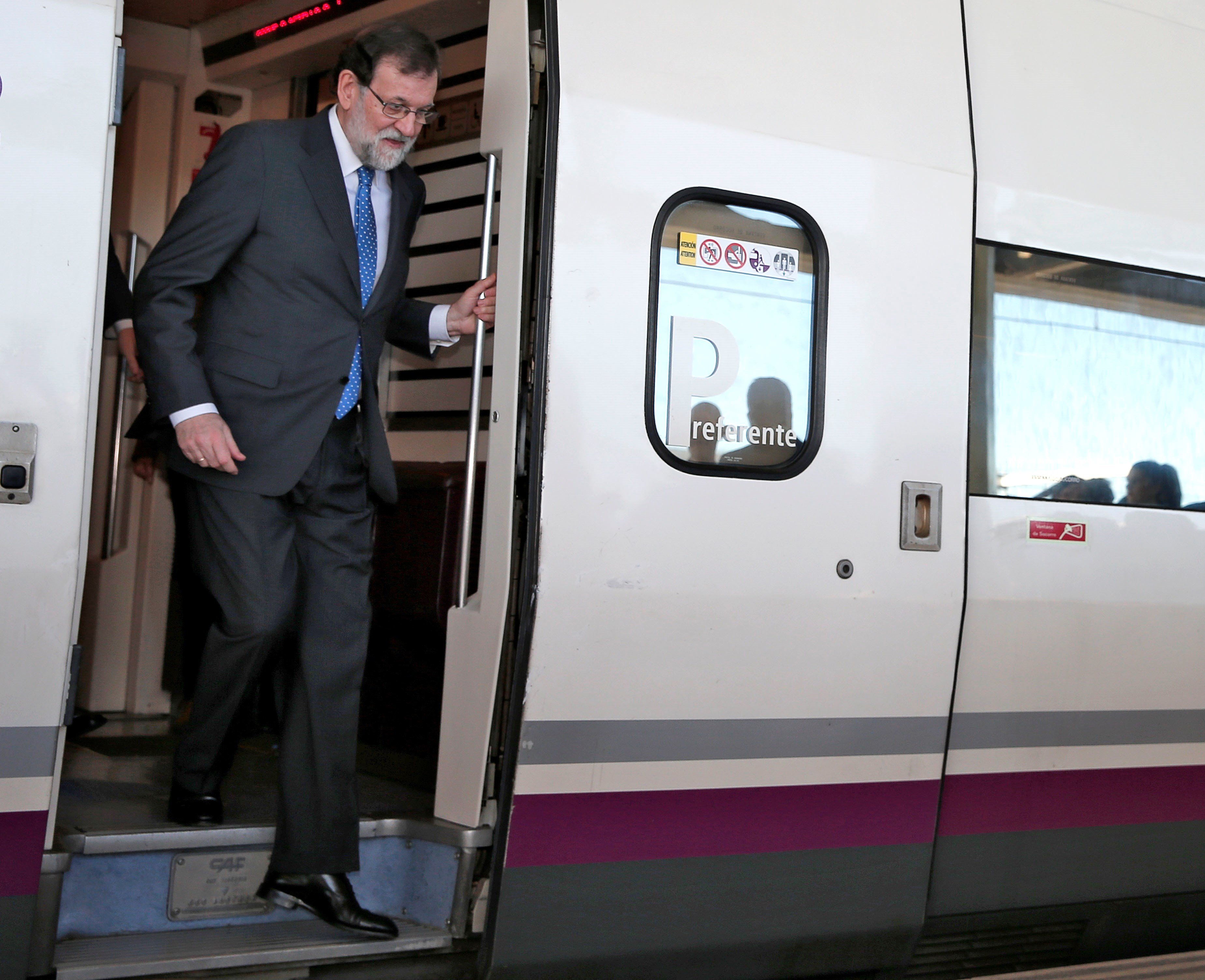The AVE high-speed train inaugurating the new line between Madrid and Castelló (north of Valencia) today, carrying Spanish prime minister Mariano Rajoy, suffered a technical fault which kept it stationary for over half an hour near Sagunt, a town between Valencia and Castelló. It was later able to start moving again, but the planned inauguration event had to be delayed.
Rajoy was heading the official delegation on the journey, alongside the president of the Valencian Community, Ximo Puig. Rajoy and the minister of Public Works, Íñigo de la Serna, left Madrid's Atocha station at 9:25am in an AVE train called Juan Sebastián Elcano, named after the Basque explorer who completed the first circumnavigation of the globe after the death of Ferdinand Magellan, which arrived at Valencia's Joaquín Sorolla station at 10:08am.
The prime minister got off the train to greet the waiting authorities: Puig, the Spanish government's delegate to Valencia, Juan Carlos Moragues, and the Valencian Housing, Public Works and Territorial Coordination minister, María José Salvador.
After a group photograph, they all boarded the train for the inaugural journey on the Valencia-Castelló AVE line, which will be open to the public from tomorrow, finishing a high-speed connection between the Spanish capital and the coastal city.
It was on this stretch that the breakdown happened. In fact, whilst they were stuck, a regional train passed them, other passengers explained on social media.
Aquí parados a unos metros de #Sagunto estrenando el #AVE a #Castellón y... nos pasa un #Cercanías #laPanderola #AVEtrenet pic.twitter.com/wxugkUGQrX
— Miguel Giménez (@Mikelgro) 22 de gener de 2018
Some time earlier, as they left Madrid, De la Serna highlighted the importance of the inauguration in a message on his Twitter account. "Today is an important day for Spain because, with the opening of the Valencia-Castelló stretch, we continue moving forwards with the strong investment by Mariano Rajoy's government on the Mediterranean corridor", he wrote. The minister also shared a photograph including himself and the prime minister celebrating "another high-speed milestone".
Viajando con @marianorajoy desde #Madrid camino de #Castellón en #AVE. Otro hito de la alta velocidad en España se cumple @Adif_es @Renfe #ConectadosalFuturo pic.twitter.com/dPCdkb9GgT
— Iñigo de la Serna (@idlserna) 22 de gener de 2018
Criticism from Valencia
Both the Valencian government and the parties that comprise it have in recent days criticised the handling of the project, given the imminent opening. The director general of Public Works, Transport and Mobility for the Valencian government, Carlos Domingo, said that the AVE to Castelló "arrives late and badly after many failures and harming [regional] Rodalies services".
He described it as another example of the "evident lack of interest and improvisation by the [central] government in the Valencian Community". He expressed his regret that the new AVE isn't much quicker than the previous Alvia, having to travel practically like Rodalies trains on the stretch.
PSOE, Puig's party, also criticised the central government's "failure to fulfil" with the high-speed project because it will take longer than originally promised. Meanwhile, their coalition partners, Compromís, decided to not attend the inauguration because they don't believe that "high-speed reaches" Castelló, but that it's the "thousandth botched job" by the central government in Valencia.
Given this, the president of the PP in Valencia, Isabel Bonig, said that the arrival of AVE to Castelló "is a reality thanks to the PP government" and criticised Compromís's "tantrums".

